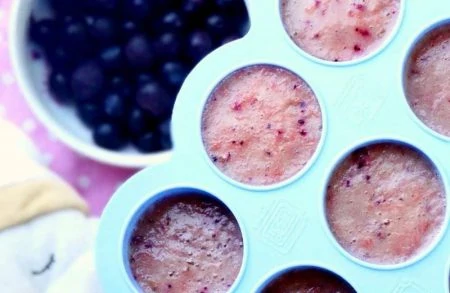Root veggies like sweet potatoes are standard starting points, but what about something creamier? If you love a good Mediterranean spread, you might be asking, “Can I give my baby hummus?”
The short answer is yes, but the ingredients matter. Let’s break down the benefits, the risks, and the best way to introduce this protein-packed dip to your little foodie.
Key Takeaways
- Timeline: You can introduce simple, homemade hummus to babies around 6 months old once they start solids.
- Ingredients: Avoid store-bought versions high in salt or preservatives; stick to plain chickpeas and olive oil initially.
- Allergies: Tahini (sesame paste) is a common allergen, so introduce it cautiously and separately from other new foods.
- Safety: Always blend chickpeas until perfectly smooth to prevent choking hazards.
What Is Hummus?
Hummus is a creamy, savory spread made primarily from mashed chickpeas (garbanzo beans). Traditional recipes usually blend the beans with tahini (sesame paste), lemon juice, garlic, and olive oil.
It is a staple in Middle Eastern cuisine but has become a worldwide favorite for healthy snacking. While adults love it as a dip for pita bread or raw veggies, its soft texture makes it an interesting candidate for baby food.
Nutritionally, it is a powerhouse. The chickpea base is loaded with fiber, plant-based protein, iron, folate, and B vitamins. When made with olive oil, it also provides healthy fats essential for your baby’s brain development (1).
When Can a Baby Eat Hummus?
Most pediatricians recommend introducing solid foods around 6 months of age (2). Before this milestone, breast milk or formula provides all the necessary nutrition.
You can offer simple, bland hummus as soon as your baby is ready for solids, typically between 6 and 8 months. However, “bland” is the keyword here. A baby’s digestive system is delicate, and the spice or acid levels in standard hummus might cause upset.
Tips for Introducing Hummus
When you are ready to serve that first spoonful, keep these guidelines in mind:
- Start simple: Begin with a homemade blend of just chickpeas and a little olive oil or water to thin it out.
- The 3-day rule: Offer a tiny amount, then wait three days before introducing another new food. This allows you to spot signs of an allergic reaction or digestive trouble specifically linked to the hummus.
- Avoid the store-bought trap: Mass-produced tubs often contain preservatives, excessive sodium, and emulsifiers that aren’t ideal for infants.
- Spice it up later: Once your baby tolerates the basics (around 8 to 12 months), you can gradually add mild flavors like a drop of lemon juice, a dash of cumin, or roasted garlic.
In my medical practice, I discuss introducing proteins into the diet at the 6-month and 9-month well visits. If an infant began cereals at 4 months old and has tolerated some fruits and vegetables, I give the go-ahead to start meats and legumes. This includes chickpeas. Chickpeas are often one of the first proteins offered for families who follow a vegetarian diet. A small amount of seasoning is fine to add, making them more palatable, but I suggest limiting the amount of salt.Per the updated AAP recommendations for allergenic foods, I also discuss introducing nut butters between 6 to 9 months old. Tahini is included in this category. After years of stating otherwise, early introduction of such foods has been found to be protective against the development of allergic reactions (3).
That said, these foods should still be introduced one at a time over three to five days to identify the offending food if an allergic reaction occurs.
Editor's Note:
Dr. Leah Alexander, MD, FAAPIngredients to Watch Out For
Navigating food allergies is a major part of early feeding. While we used to delay allergens for years, modern research suggests introducing them early (around 6 months) may actually help prevent allergies. However, you must always do so carefully and consult your pediatrician first (4).
Here is a breakdown of the specific risks hidden in a bowl of hummus.
1. Tahini (Sesame)
This is the big one. Tahini is a paste made from toasted sesame seeds, and sesame is a top-tier allergen, right up there with peanuts.
Sesame allergies can be severe and life-threatening (anaphylaxis). Interestingly, many children outgrow this allergy, but it requires careful management (5).
Reactions might not happen on the very first taste, which is why the 3-day wait rule is vital. Watch for hives, swelling, vomiting, or breathing issues. If your family has a history of food allergies, talk to your doctor before adding tahini to your baby’s diet.
As a precaution when starting any new food, it is a good idea to have a bottle of Benadryl in the home in case of an allergic reaction. If one does occur, call your pediatrician. I often review the weight-appropriate dose of Benadryl during well visits as an additional precaution.
Editor's Note:
Dr. Leah Alexander, MD, FAAP2. Garlic
Garlic offers great immune-boosting benefits, but raw garlic is potent. It can irritate a baby’s tummy and cause gas, leading to a fussy, uncomfortable afternoon.
If you use garlic, roast it first to mellow the flavor, or use a tiny amount of garlic powder. Introduce it slowly to see how your baby handles it.
3. Salt
Babies have developing kidneys that cannot process high loads of sodium. Infants under 1 year should consume less than 1 gram of salt per day (6).
Store-bought hummus is often sodium-heavy to boost shelf life and flavor. Making it at home gives you total control; simply skip the salt shaker entirely for the baby’s portion.
4. Chickpeas
The star ingredient is generally safe, but chickpeas are legumes known for high fiber content. While fiber is good, too much too soon can cause bloating and gas.
If your baby is already prone to colic or tummy troubles, you might want to introduce chickpeas in very small quantities. Also, never serve whole chickpeas to a baby, as they are a choking hazard. They must be mashed or pureed.
Baby-Friendly Hummus Recipe
This simple recipe focuses on texture and nutrition without the additives.
Ingredients:
- 1 can (14 oz) chickpeas (no salt added), rinsed and peeled.
- 2-3 tablespoons olive oil.
- 1-2 tablespoons water (to adjust consistency).
- Optional: 1 tablespoon tahini (only if you have ruled out allergies).
Instructions:
- Prep the beans: Rinse the chickpeas thoroughly. For an ultra-smooth texture, pinch the skins off the chickpeas (it takes time but helps prevent gagginess).
- Blend it up: Toss the chickpeas and olive oil into a food processor. Pulse until crumbly.
- Adjust texture: With the motor running, slowly add water or more oil until the mixture is creamy and smooth. There should be no lumps.
- Serve: Offer a small spoonful or spread it on a teething rusk.
Please Note














